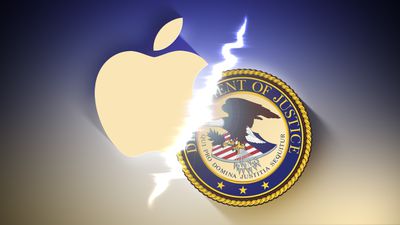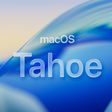Apple today filed a motion to dismiss its ongoing lawsuit with the United States Department of Justice, a standard step in the litigation process. In its motion to dismiss, Apple argues that the government's complaint has not demonstrated anticompetitive conduct, anticompetitive effect that harms consumers, or that Apple is a monopoly power in the U.S. smartphone market. The government needs to prove all three of these claims for a successful antitrust lawsuit.

For the anticompetitive allegation, the DoJ lawsuit focused on third-party access to Apple services and features, but Apple argues that there is longstanding Supreme Court precedent that companies can set the terms and conditions of their third-party dealings. Apple claims that the DoJ is attempting to force it to spend money to develop tools for big business competitors, which could have a "chilling" effect on innovation. The DoJ suggested, for example, that Apple should have developed an iMessage app for Android.
iMessage is Apple's proprietary, innovative messaging service that Apple created to competitively differentiate iPhone. Under the Government's view, companies like Apple should face antitrust liability for not expending the resources, cost, and time to develop versions of proprietary products and services for competitors' devices.
Apple points out that the DoJ's complaint does not explain how Apple's alleged limiting of "super apps," cloud streaming apps, digital wallets, messaging apps, and competing smartwatches has harmed consumers or impacted consumer choice about which smartphone to purchase. For a successful antitrust lawsuit, the DoJ needs to prove that Apple's actions hurt consumers and stifle competition, and the DoJ argues that Apple has "locked" customers into its ecosystem.
It is implausible to claim, as the Government does, that Apple has deterred any customers from switching to Google or Samsung because of its policies with respect to "super apps," cloud gaming, smartwatches, or anything else. The opposite is much more plausible: Users unhappy with Apple's reasonable policies on third-party access can and do switch away to competitors' devices, where those limits do not exist.
Apple argues that it is not a monopolist because it faces competition from companies like Google and Samsung, preventing the government from establishing the "typical hallmarks of monopoly power." Apple does not have enough U.S. smartphone marketshare to make the monopoly claim easy for the government to establish. The DoJ has compared Apple to Microsoft, but Microsoft had a 95 percent share of the operating system market when it faced an antitrust lawsuit, while Apple's is closer to 65 percent.
Apple further suggests that the DoJ is aiming to have the court establish a "new theory of antitrust liability" that no prior court has recognized and that would provide "unprecedented authority to control Apple design choices." Apple says that the DoJ is targeting the very features that distinguish iPhones from competing devices, and if the DoJ ultimately wins the case, courts would need to "oversee product-design and policy choices," which they are not equipped to do.
A motion to dismiss limits the information that Apple can provide to dispute the DoJ's claims, and rulings often favor plaintiffs. The allegations that the DoJ made are assumed to be true at this stage, and Apple needs to prove that the claims fail as a matter of law. For this reason, the lawsuit is likely to progress, though claims could be narrowed and there is a chance for dismissal.
If the court rules in the Department of Justice's favor on the dismissal, there will be many future chances for Apple to sway the court because this is a legal battle that will span years.
After Apple's motion to dismiss, the government has until September 12 to file an opposition brief. From there, Apple will file a reply brief on October 10, and there could be a possible hearing after that. A ruling on the motion to dismiss is expected in late 2024 or early 2025.
Should the government win, Apple will file an answer to the initial complaint, leading to a discovery period where both parties provide documents, expert testimony, and depositions, which can last for over a year. A summary judgment will follow, which is where Apple can make a stronger case, and that might not happen until 2027. Should the case ultimately go to trial, a trial could take place sometime in 2028, or even later.
For a refresher on the DoJ's antitrust claims against Apple, we have a dedicated guide that highlights everything you need to know about the U.S. vs. Apple legal fight.





















